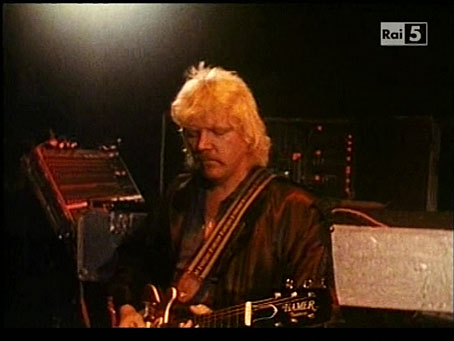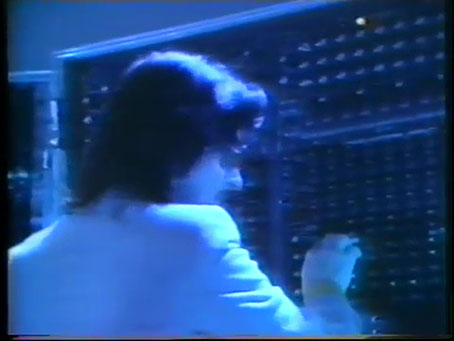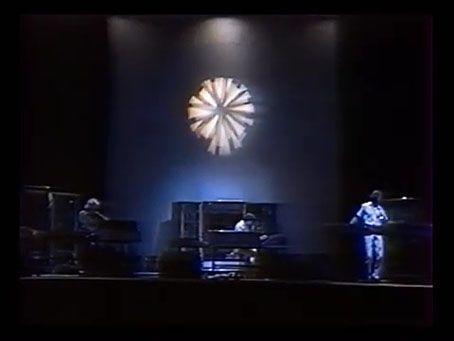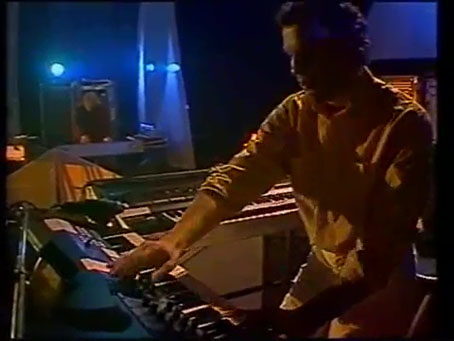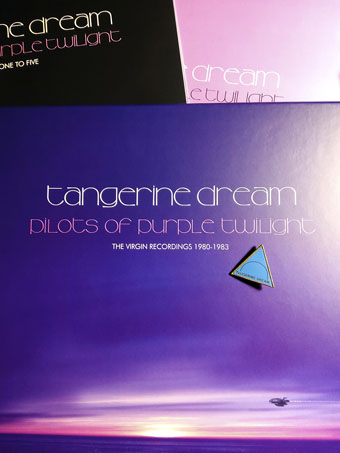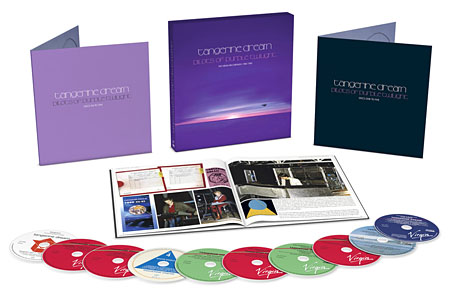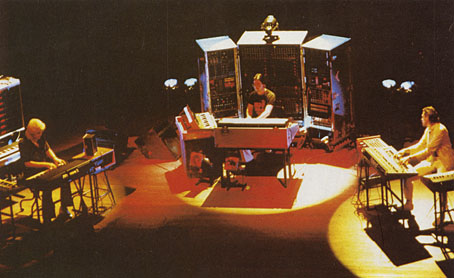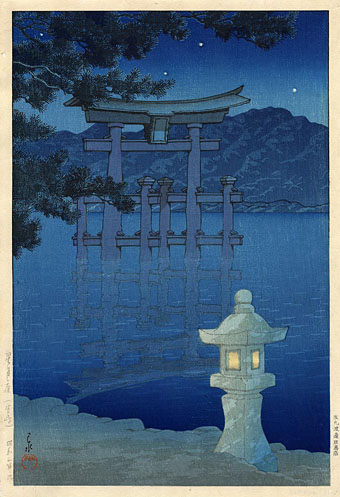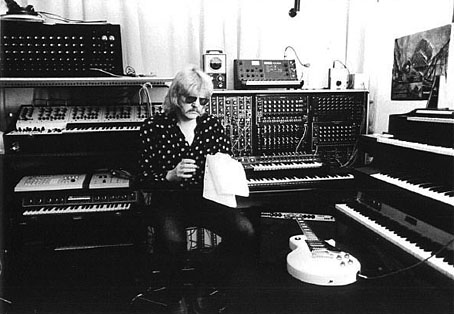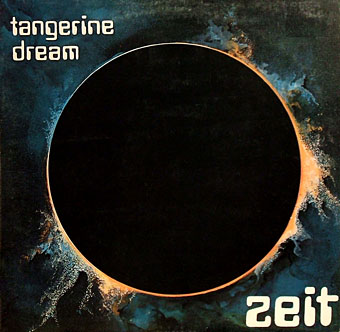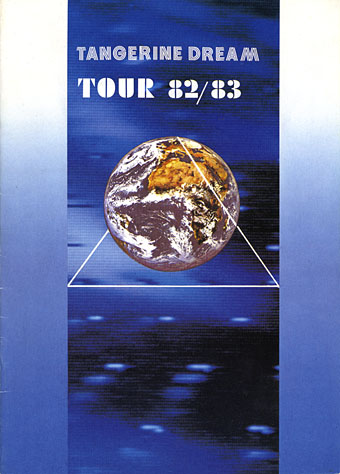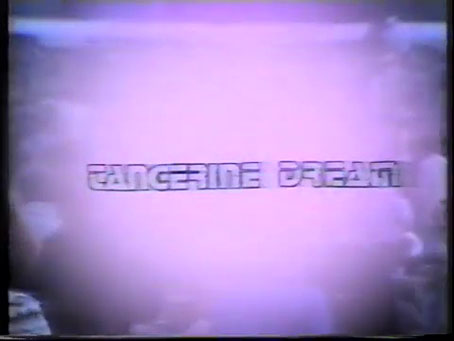
I was going to call this post “Remote Viewing”, after the last track on Tangerine Dream’s Exit album, but the reference is too obscure. Having spent the past week listening to the Pilots Of Purple Twilight box I thought I’d see what concert video might be available from the period covered by the recordings, 1980–83. Thank to some recent YouTube uploads there’s more than I expected. A couple of things are notable about these TV performances: the first is that two of them feature the same annoyingly mismatched audio and video that spoiled Tony Palmer’s record of the group playing in Coventry Cathedral in 1975; the second is that all the footage is from Continental Europe. Tangerine Dream were very popular in the UK throughout the 1970s and 80s—they were on a British record label, after all, and toured here extensively every couple of years—but Palmer’s film is the only record of a British TD concert. These videos aren’t always the highest quality but they make up for the negligence of the BBC and ITV.
Palasport, Bologna, 20th October, 1980.
Mismatched audio and video in the opening scenes, followed by an interview with the group in Italian and German. The audio and video is in synch after this, and includes rare footage from this period of Edgar Froese playing guitar on Diamond Duster, an uptempo piece that evolved into Diamond Diary for the Thief soundtrack. I’m not always keen on Edgar’s meandering live solos but this is still good to see. Also of note for synth-heads is how much of the group’s equipment was still the analogue modular gear they were using in the 1970s.
Platz der Republik, West Berlin, 29th August, 1981.
A big concert in the group’s home city. The opening shows them playing Kiew Mission, the first time they did so in concert with a live singer providing the vocals. The audio for this piece, however, is an overdub from the Exit album.
Lycabettus Theatre, Athens, 30th August, 1983.
A shame this isn’t better quality because it’s the best of the lot: 85 minutes of the group performing (with no overdubs) preceded by 10 minutes of an interview in English for Greek TV. The concert itself features a more elaborate light show than usual, while the first half of the show includes new compositions that later turned up on the live Poland album.
Warsaw Ice Stadium, 10th December, 1983.
And speaking of which (and linked here before), half an hour of the two-hour Warsaw concert. The earlier YouTube copy featured additional footage of a dancer in a studio but this version is sans dancer.
Previously on { feuilleton }
• Pilots Of Purple Twilight
• Synapse: The Electronic Music Magazine, 1976–1979
• German gear
• Edgar Froese, 1944–2015
• Synthesizing
• Tangerine Dream in Poland
• Electronic Music Review
• Tonto’s expanding frog men
• A Clockwork Orange: The Complete Original Score
• White Noise: Electric Storms, Radiophonics and the Delian Mode

